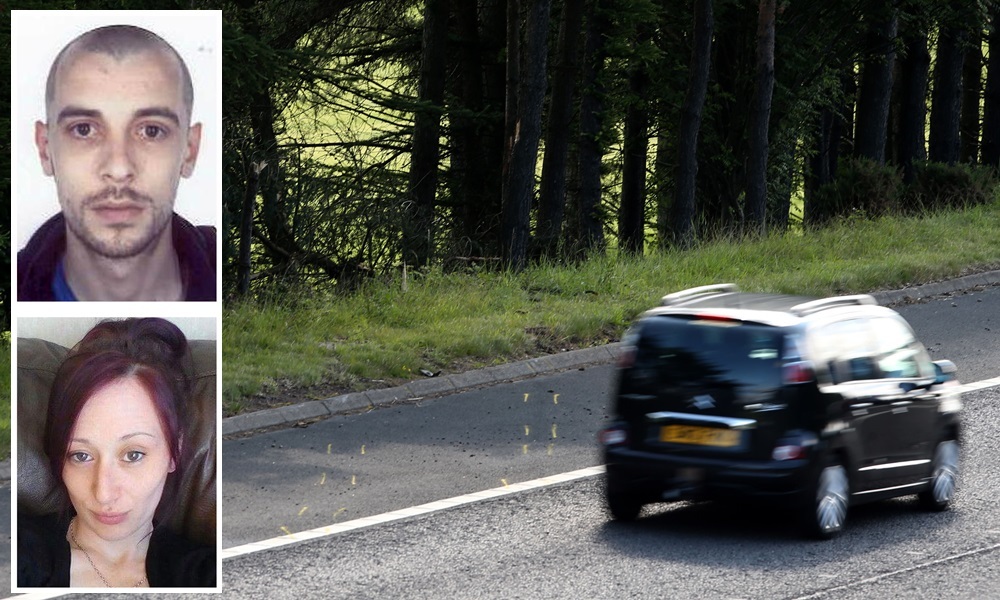The police control room at the centre of the tragic M9 death crash probe had “insufficient staff available” at the start of the year, a new report has found.
Her Majesty’s Inspectorate of Constabulary Scotland (HMICS) was asked to review call centre handling in the wake of John Yuill and Lamara Bell lying for days in their car by the side of the busy road, despite a call being made to Police Scotland.
It contains 30 recommendations for improvement and says no more control rooms should be shut until existing arrangements are stabilised.
The most damning verdict rules: “There were insufficient staff available in Bilston Glen when work transferred from Stirling and Glenrothes in early 2015, resulting in low levels of performance.”
Bilston Glen was the control room which took both calls regarding the crash.
While the current ICT systems are generally fit for purpose and offer basic functionality, the report says their stability remains in question while network performance continues to affect day-to-day operations.
It also points out that non-emergency call responses are worst in the North, where call centre cuts are planned for Dundee, Aberdeen and Inverness.See also: Around 400 calls transferred from Dundee’s police control room due staff shortages each weekThe report says calls are being answered quickly with 94% of 999 emergency calls currently answered within 10 seconds in the West, with 93% in the North and 92% in the East.
This compares with 92% of non-emergency 101 calls currently being answered within 40 seconds in the East and West, although only 82% in the North.
An HMICS audit of calls also showed the majority of people who rang 999 and 101 received an effective service with service advisors capturing all relevant information with a 98% accuracy rate.
HM Inspector of Constabulary Derek Penman gave assurance on seven areas the commitment of the staff to provide a quality service to the public; the current stability of staffing levels; the provision of basic processes; the effective handling of emergency and high priority calls; the effective assessment of risk and vulnerability and the new training arrangements for all new staff.
But he added: “While priority calls are answered quickly and result in a prompt response from officers, I found that lower priority calls can be affected by a lack of available resources to attend incidents and weak local management of calls.”
(more soon)
